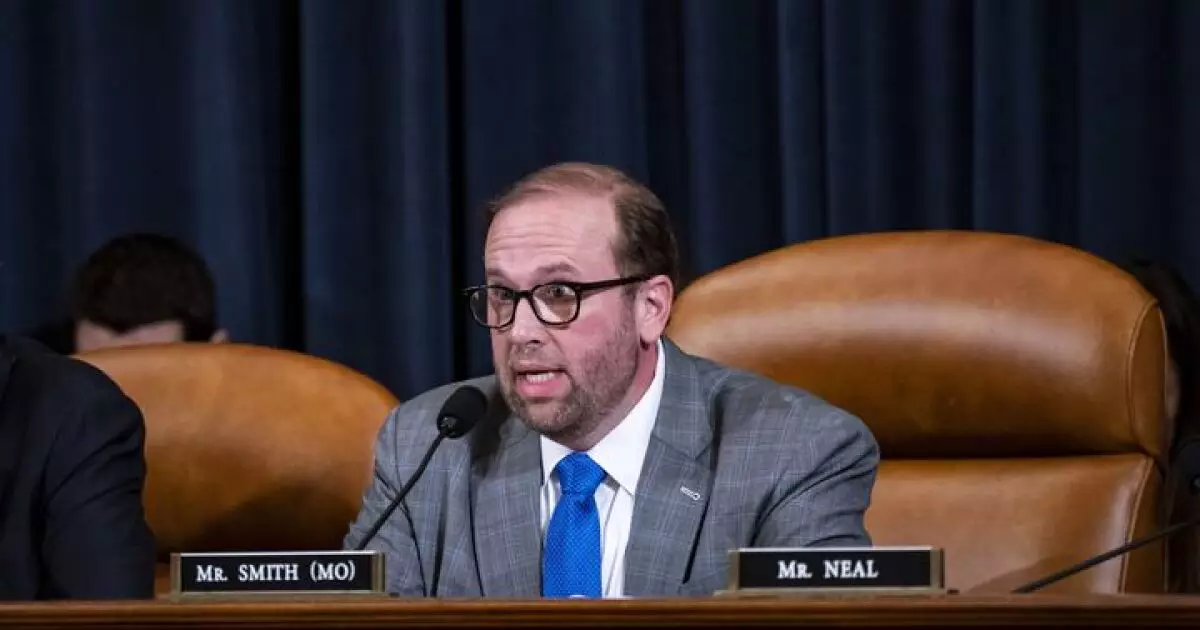In recent months, the municipal bond market has been facing a significant upheaval with the emergence of discussions surrounding the potential elimination of tax-exempt bonds. This anxiety is no longer speculative; a 51-page document detailing proposed budgetary measures has surfaced, revealing a sweeping agenda from the House Ways and Means Committee. For those involved in municipal finance, this development feels like a looming storm, as the cherished tax exemption for municipal bonds stands at risk of being swept away. The implications of such action could be extensive, affecting not only investors and issuers but also the myriad of public projects that rely on the municipal bond marketplace for funding.
A Closer Look at the Proposed Cuts
While the list distributed recently highlights numerous programs and policies under consideration for cuts or eliminations, it’s clear that the elimination of tax-exempt bonds holds substantial financial ramifications. Municipal bonds generally offer interest that is exempt from federal taxes, which serves as a crucial incentive for investors. Legislators are reportedly exploring ways to recover significant funds to address ongoing fiscal demands; for instance, eliminating this tax exemption could generate upwards of $250 billion over the next decade. Moreover, the proposal to eradicate the nonprofit statuses of hospitals—integral players in the municipal bond sector—signals potential seismic shifts in funding mechanisms for healthcare facilities.
Moreover, the proposed adjustments concerning state and local tax deduction caps also provide a clear view of shifting budgetary priorities. The suggested ideas span from entirely removing these deductions for both personal and corporate taxpayers to more nuanced strategies, all aimed at generating considerable savings. The prospect of such legislative actions indicates an aggressive approach to budget balancing that necessitates careful scrutiny and consideration from stakeholders in finance and municipal governance.
In response to the perceived threat to tax-exempt status, organizations such as the Bond Dealers of America (BDA) and the Government Finance Officers Association are mobilizing their efforts. Engaging directly with lawmakers is a strategic move intended to advocate for the preservation of municipal bonds. Brett Bolton, a prominent advocate from the BDA, emphasizes the importance of continued dialogue and education with decision-makers on Capitol Hill. By articulating the vital role municipal bonds play in infrastructure and community development, proponents hope to stave off detrimental changes.
The success of these advocacy efforts hinges on effective communication and building alliances with legislative champions who understand the value of the municipal bond framework. The urgency of this initiative cannot be understated; each meeting with lawmakers is a vital touchpoint that could influence the trajectory of proposed reforms.
The discussion surrounding the elimination of tax-exempt bonds is intertwined with broader fiscal policies and the partisan divisions that characterize contemporary governance. As the Ways and Means Committee deliberates, the outcomes remain consequential not only for municipal funding but also for public service delivery across various sectors including healthcare, education, and infrastructure.
It is crucial for stakeholders to remain vigilant in monitoring this evolving situation. The elimination of tax preferences could signal a shift toward a landscape where borrowing costs for municipalities rise, disproportionately impacting smaller entities that depend heavily on accessible financing for essential public projects.
Moreover, the implications of reduced access to tax-exempt financing may unfurl beyond immediate financial burdens, influencing community development and quality of services offered to citizens. Therefore, the municipal bond market’s survival is intricately tied to the outcomes of these discussions—a scenario that warrants an urgent call for collaboration among various stakeholders.
As discussions advance within the House Ways and Means Committee, the backlash within the municipal finance community grows in intensity. Maintaining the sanctity of tax-exempt bonds is crucial, not only for financial markets but for the health of communities across the nation. It is imperative for advocates to unite their voices and reinforce the fundamental necessity of these financial instruments in securing the future of public service and infrastructure development. As potential legislative changes loom large, attentive advocacy and strategic engagement with lawmakers will be the linchpin in preserving this essential component of the municipal financing ecosystem.

